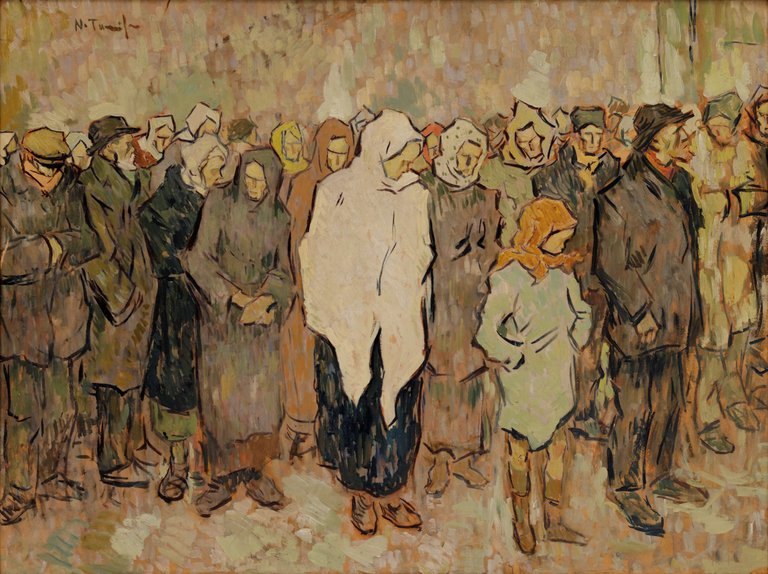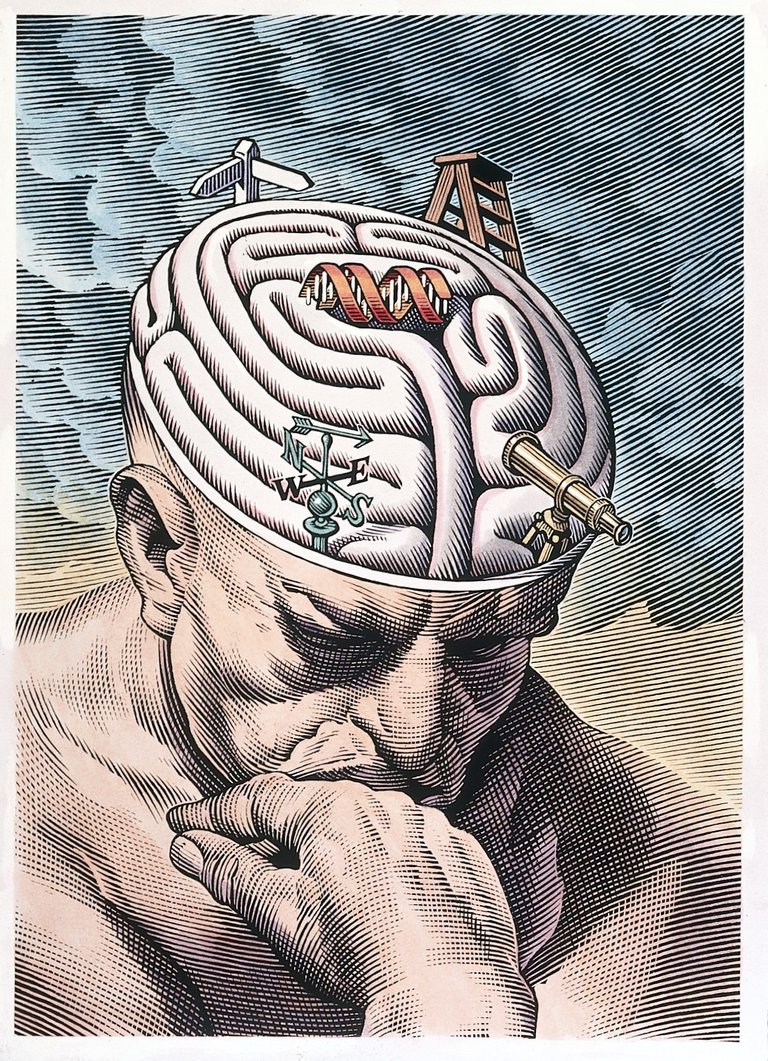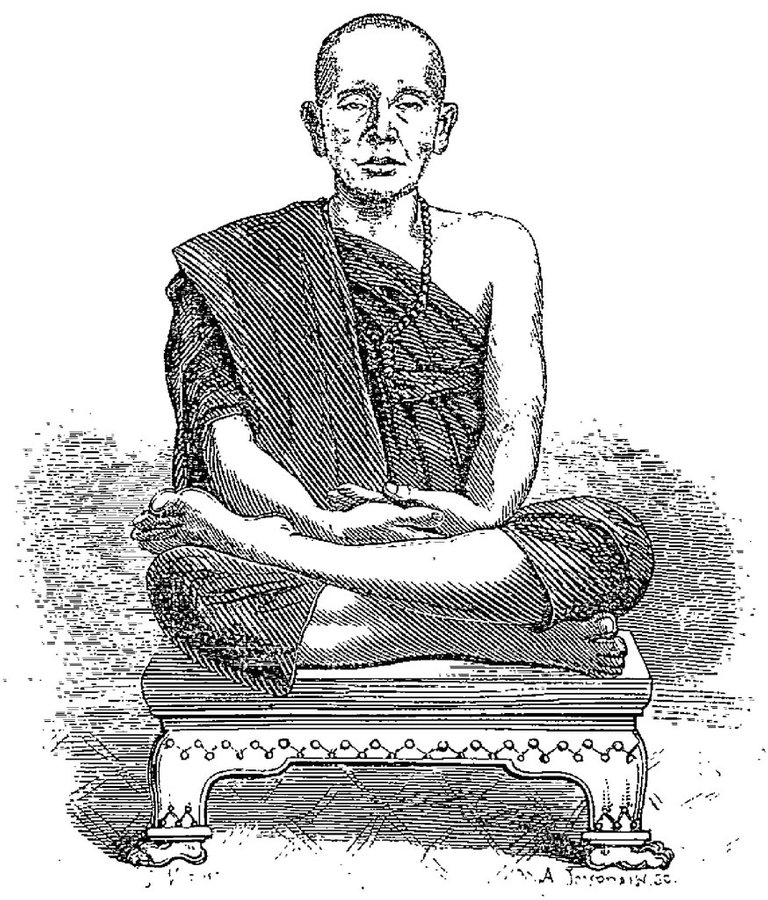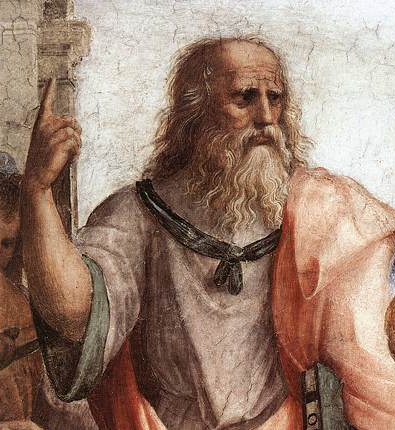
Source
Most of us today consider philosophy to be a superfluous enterprise, valuable only to those with their “head in the clouds” and time to kill. This view may be partially attributable to the growing interest that contemporary philosophers have with producing ideas intended only for their fellow academics. 20th century French philosopher Pierre Hadot pointed out:
“…modern philosophy appears above all as the construction of a technical jargon reserved for modern specialists. ”
Pierre Hadot, Philosophy as a Way of Life
Ancient philosophers were concerned not with the production of a 'technical jargon reserved for specialists,' but with the attainment of wisdom for the sake of instigating a transformation of self. As Hadot put it, modern philosophers are “artists of reason” , while ancient philosophers were “artists of life” .
“…he [the philosopher] is the one, in fact who knows the fundamental thing, how to live. ”
Seneca, Letters from a Stoic
In today's article I will try and unearth some of the ancient philosophers' ideas on the elusive “art of living” , displaying philosophy as a subject imbued with a potentially transformative power which can help one change their life.
Many of the great ancient philosophers viewed humans as for the most part living misguided lives filled with fear, ignorance, and idiocy. The 19th century American philosopher Henry David Thoreau summarized this view of the ancient philosophers, writing:
“The mass of men lead lives of quiet desperation. ”
Henry David Thoreau

Source
The only thing that would enable an individual to break free from the grind of daily human existence, and attain a higher state of being was, according to the ancients, wisdom:
“Throughout antiquity wisdom was considered a mode of being: a state in which a person is, in a way which is radically different from that of other people – a state in which he is a kind of superman. ”
Pierre Hadot, What is Ancient Philosophy?
This days when one studies philosophy, it is most commonly for purposes such as entering academia, law school, or to train one's self in the rigours of logic and argumentation. For the ancients, one studied philosophy to become a fully developed individual, able to navigate through life as successfully as possible, immune to the troubles, worries, and fears which plague the mind of most. As Seneca wrote:
“Philosophy is not an occupation of a popular nature, nor is it pursued for the sake of self-advertisement. Its concern is not with words, but with facts. It is not carried on with the object of passing the day in an entertaining sort of way and taking the boredom out of leisure. It moulds and builds the personality, orders one’s life, regulates one’s conduct, shows one what one should do and what one should leave undone, sits at the helm, and keeps one on the correct course as one is tossed about in perilous seas. Without it no one can lead a life free of fear or worry. ”
Seneca, Letters from a Stoic
In their quest for wisdom, the ancient philosopher's rupture from the status-quo was radical. The Cynics owned little, lived on the streets, and openly shunned and mocked social norms and conventions. The Epicureans removed themselves from society altogether, setting up their own small community of philosophers. The Stoics' sought to construct an inner impenetratable fortress, unaffected by either men or gods.
Most of us today can't or aren't willing to undergo such a drastic rupture with the status quo, the ancient philosophers put forth potentially transformative practical exercises. The exercises can be practiced by anyone at anytime, and can potentially raise one's self and worldview to a level higher than most can even comprehend.
“Practice these and the related percepts day and night and you will live as a god among men. ”
Epicurus

Source
Pierre Hadot spent much of his life investigating these practices, calling them “Spiritual exercises” . French sociologist Georges Friedmann nicely captured the essence of the nature of spiritual exercises with the following words:
“Take flight each day! At least for a moment, however brief, as long as it is intense. Every day a “spiritual exercise,”…Leave ordinary time behind. Make an effort to rid yourself of your own passions… Become eternal by surpassing yourself. This inner effort is necessary, this ambition, just. ”
Georges Friedmann
While the ancient philosophers set forth numerous “Spiritual exercises” , I will look at three of the more powerful ones: a meditation on death, a premeditation on future evils, and assuming a view from above
A Meditation On Death

Source
Far from being morbid, the ancient philosophers thought that frequently meditating on death could help one appreciate and make the most of life by becoming aware of its inherent fragility. Most of us spend their days wholly consumed with planning and acting for the sake of the future, unable to enjoy the pleasures and beauty of the present moment, and completely unaware that the future which consumes so much of their time and energy may never come. We would be wise, though the ancients, to remind ourselves of the uncertain and uncontrollable nature of death more often:
“Persuade yourself that each new day that dawns will be your last; then you will receive each unexpected hour with gratitude. Recognize all the value of each moment of time which is added on as if it were happening by an incredible stroke of luck. ”
Horace
“Let your every deed and thought be those of one who might depart from life this very moment. ”
Marcus Aurelius, Meditations

Source
Popular among Stoic philosophers, premeditating on future evils was though to be an effective antidote to the inevitable painful and tragic situations that everyone must face, in one form or another.
“He robs present ills of their power who has perceived their coming beforehand. ”
Seneca, Letters from a Stoic
If we contemplate potentially painful events ahead of time, acknowledging situations we are afraid of as a possibility, we will be better prepared to endure and overcome them. As Seneca explained:
“What is quite unlooked for is more crushing in its effect, and unexpectedness adds to the weight of a disaster. The fact that it was unforeseen has never failed to intensify a person’s grief. This is a reason for ensuring that nothing ever takes us by surprise. We should project our thoughts ahead of us at every turn and have in mind every possible eventuality instead of only the usual course of events. ”
Seneca, Letters from a Stoic
Assuming A View From Above

Source
One of the more powerful and potent of the ancient spiritual exercises involved assuming a “view from above” . The ancients thought that by contemplating the vast and majestic universe one can rise above all “earthly troubles” , and look down upon the world as if from above:
“Watch and see the courses of the stars as if you are running alongside them, and continually dwell in your mind upon the changes of the elements into one another; for these imaginations wash away the foulness of life on the earth. When you are reasoning about mankind, look upon earthly things below as if from some vantage point above them. ”
Marcus Aurelius, Meditations
Most people trudge through their days as if they have the weight of the world on their shoulders, constantly worries about their own individual life, and troubled by the suffering and evil that seems so pervasive in the world. To combat these existential sufferings, the ancients thought we should in our minds rise to a higher perspective:
“Place before your mind’s eye the vast spread of time’s abyss, and embrace the universe; and then compare what we call human life with infinity… ”
Seneca, Letters from a Stoic
Plato's entire philosophy was built around transcending one's individual perspective for a more total universal perspective. His words helped Nietzsche, an “artist of life” like the ancients, escape from the pressures of being human, and realize that in the end it's all only human, all too human:
“At sunset in Genoa, I heard from a tower a long chiming of bells: it kept on and on, and over the noise of the backstreets, as if insatiable for itself, it rang out into the evening sky and the sea air, so terrible and so childish at the same time, so melancholy. Then I thought of Plato’s words and felt them suddenly in my heart: all in all, nothing human is worth taking very seriously; nevertheless. ”
Friedrich Nietzsche, Human, All Too Human.
Along with cultivating a sense of release from the burdens of daily human existence, a view from above stimulates feelings of wonder.
“Dwell on the beauty of life. Watch the stars, and see yourself running with them. ”
Marcus Aurelius, Meditations

Source
Wisdom and wonder have a close connection: both Plato and Aristotle claimed philosophy to have been born in wonder and the philosopher to be continually sustained by wonder in his pursuit of wisdom, Heidegger captured the wonder that enticed him, conceiving it as:
“…the wonder that a world is worlding around us at all, that there are beings rather than nothing, that things are and we ourselves are in their midst, that we ourselves are and yet barely know who we are, and barely know that we do not know all this. ”
Martin Heidegger
Along with instigating a transformation of self and a new way of seeing the world, the ancient philosopher sought to become an autonomous individual, meaning an individual who is a “law unto himself.” In our modern age of calm despotism and increasing social conformity, autonomous individuals are sorely needed. The modern individual who abides by the ancient conception of philosophy as a way of life, those “endless seekers” who “unsettle all things” as Emerson described them, are beacons of individuality and originality. And in a world becoming increasingly uniform and unfree more of this type are sorely needed. In the words of Nietzsche:
“Where there have been powerful societies, governments, religions, public opinions, in short wherever there has been tyranny, there the solitary philosopher has been hated; for philosophy offers an asylum to a man into which no tyranny can force its way, the inward cave, the labyrinth of the heart: and that annoys the tyrants. ”
Friedrich Nietzsche, Untimely Meditations.
- Philosophy as a Way of Life
- What is Ancient Philosophy?
- Meditations
- Human, All Too Human.
- Untimely Meditations.
- Martin Heidegger
- Letters from a Stoic
- Georges Friedmann
Peace! ✌️
I am very close to the thought of Plato and the myth, as a story and vehicle of understanding and knowledge for the citizen. I don't study philosophy but I try to get informed and read, especially for my sector.
Excellent article. A platonic hug.
Thanks for the platonic hug 😂, I too don't major in Philosophy but I have taken some classes on metaphysics, they ignited my love for philosophy and I do a lot of vast reading during my free time. It is the best source of knowledge and wisdom, the ancients were really wise, and life is more interesting with their insights and musings. You have got great art too, I used to love drawing but I kinda stopped, art is a great hobby and career.
Congratulations @peeterxnjoroge! You have completed the following achievement on the Hive blockchain and have been rewarded with new badge(s) :
You can view your badges on your board and compare to others on the Ranking
If you no longer want to receive notifications, reply to this comment with the word
STOPDo not miss the last post from @hivebuzz:
!discovery 40
Questo post è stato condiviso e votato all'interno del discord del team curatori di discovery-it Entra nella nostra community! hive-193212
This post was shared and voted inside the discord by the curators team of discovery-it. Join our community! hive-193212